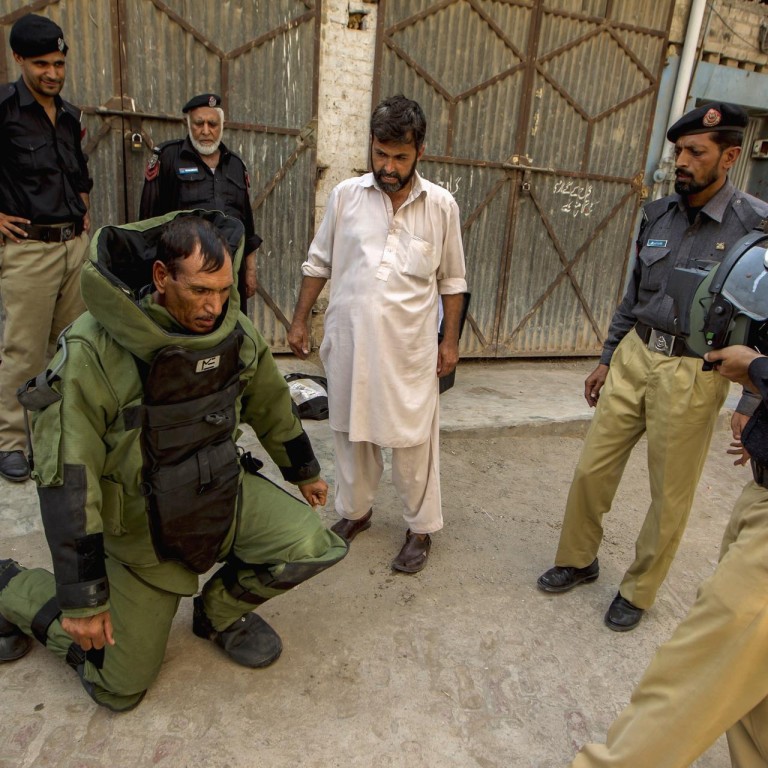
Pakistan bomb disposal unit has 70pc vacancy rate
Bomb disposal squad in Peshawar short 70pc of staff as officers risk their lives daily defusing explosive devices for low pay and long hours
A technician from Pakistan's top bomb disposal unit packed some ageing detonator cord confiscated from the Taliban into a plastic water bottle and reached for a roll of sticky tape.
With his low-cost, improvised - and extremely dangerous - device he demonstrated how he destroys militant bombs, but also revealed desperate shortages of money and equipment for Pakistan's overworked bomb disposal experts.
Twelve years into the war on militancy, Pakistan's police are chronically underfunded. This year's federal budget gave the military about US$6 billion and the police US$686 million, a lopsided allocation mirrored in the disbursement of foreign aid.
While the US has given Pakistan about US$30 billion since 2001, the police have got a tiny fraction compared with the military. A little of that reached the country's top police bomb disposal unit in Peshawar.
Peshawar, the historic gateway to the Khyber Pass and Afghanistan, has been a target of the militants time and again.
The city's bomb squad has defused more than 5,000 devices since 2009, from child suicide bombers to big trucks packed with explosives. Shafqat Malik has led the unit for four years.
"When I joined, we just had a few wire clippers," Malik said as he patted a panting Labrador, one of the unit's sniffer dogs.
Technicians would poke at bombs with two-metre-long sticks to try to defuse them, he said.
Now Malik's unit has 10 sniffer dogs, 20 bomb-disposal suits and four remote-controlled bomb-disposal robots from Britain. The US donated vehicles and investigative kits and both countries have trained Pakistani officers.
But it doesn't stretch far. Two of Pakistan's four provinces suffer almost daily bombings. District-level bomb units have little training and little equipment.
Shortages mean members of Malik's squad often fall back on improvised equipment or material seized from the Taliban, although it's often old or unstable.
Between defusing bombs, Malik's 38-man squad is supposed to secure VIPs, the courts, churches, police headquarters, government offices and airports, any rallies or high-profile funerals and foreign missions. They also investigate blasts, testify in court and train new officers.
During the week, Malik sleeps in his office, below a "Keep Calm and Carry On" poster from friends at Scotland Yard. Often in the news, he is frequently filmed standing in plain clothes next to officers defusing bombs in protective suits.
"It helps calm them down," he said, grinning. When one officer defused a boy wearing a suicide-bomb vest, Malik rushed over to embrace the child. The press thought he was hugging the 12-year-old, Malik said, but he was actually searching for the trigger wire the nervous technician had forgotten to cut.
His officers have intercepted bombs smuggled into courts in computers and mailed to senior policemen in diaries, although hundreds are missed. At least 139 people were killed in Peshawar over a recent eight-day spell.
The squad's main problem is that they only get basic police salaries and there is no structure for promotion. Without danger pay to entice more men to train as bomb technicians, 70 per cent of 130 positions are vacant. The job is dangerous: a dozen men have been killed in the last five years.
They are hard to replace. Malik says technicians need 10 years of policing, rock-steady nerves and special training.
"We have zero budget," said Malik. "You have to be a madman to do this job."

